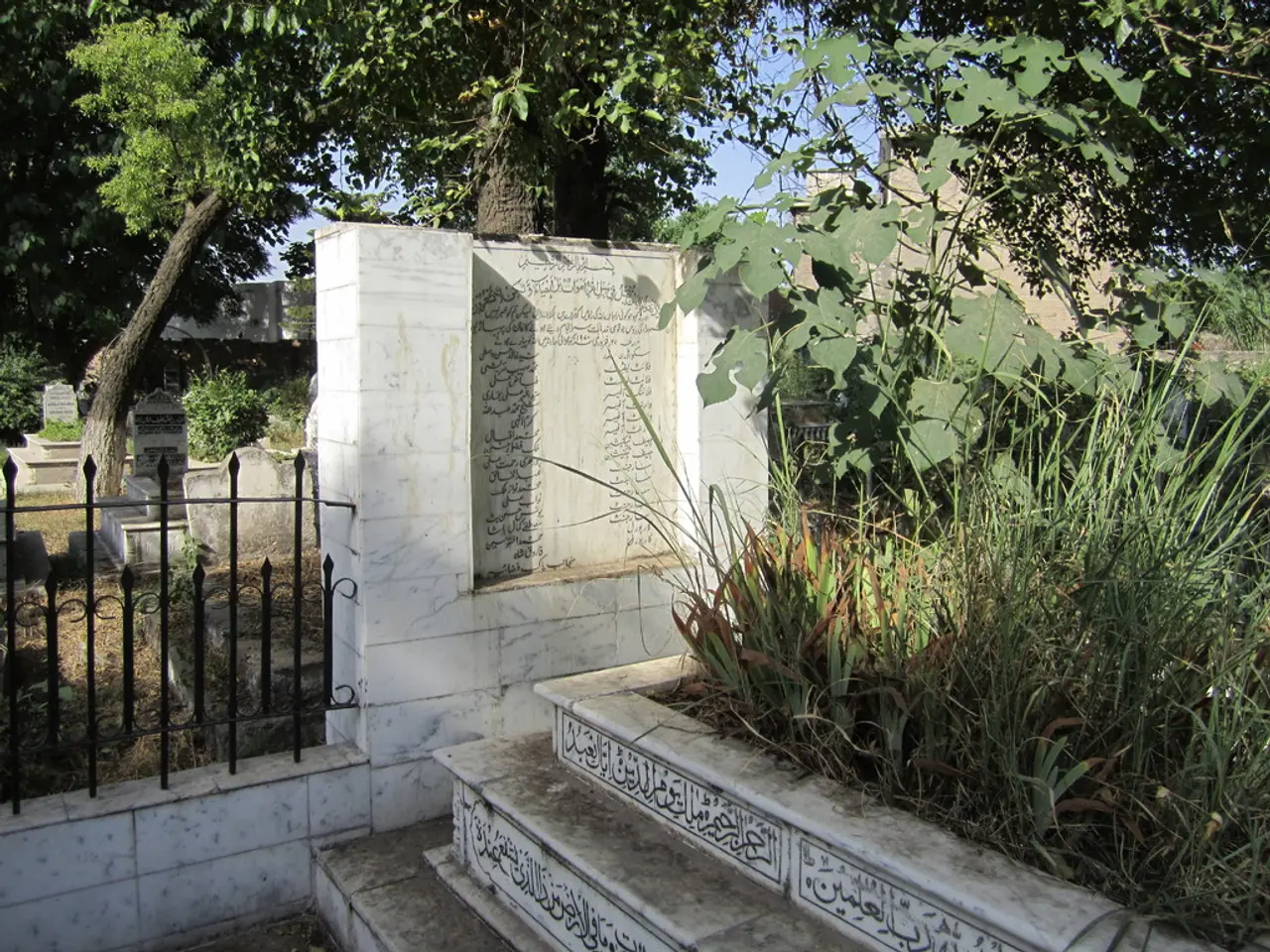Remembering the Scottish Prisoners of War: A 95-Mile Journey from Dunbar to Durham, Honoring POWs Forced to March South after the Battle of Dunbar
On September 3rd, Megan Olshefski, a PhD researcher in Archaeology at Durham University, embarked on a poignant journey. The occasion marked the 373rd anniversary of the Battle of Dunbar, and the walk was undertaken in honor of the 17th century Scottish soldiers who were forced to march south after the battle.
Olshefski's walk was not a reenactment of the actual march, but a symbolic representation of it. The route followed a similar path, starting at Dunbar and passing through Berwick-Upon-Tweed, Belford, Alnwick, Morpeth, and Newcastle, before culminating at Durham Cathedral. The final stop was significant as it was where the surviving soldiers from the march were imprisoned.
Olshefski's project, titled "Archaeological Formation of Identity, Memory, and Heritage of Seventeenth Century Scottish Prisoners of War", aims to delve deeper into the experiences of these Scottish soldiers. Her research, which is a leading centre of study at Durham University, ranked 10th in the world for Archaeology (QS World University Rankings by subject 2023), explores how captivity influenced these individuals’ sense of self and how their stories have been remembered or preserved over time.
The focus of Olshefski's current project is on those soldiers who were sent to New England. A 2013 discovery of two mass graves at Durham's Palace Green Library revealed the awful conditions endured by 17th century Scottish soldiers. Further research found that some of the surviving prisoners were eventually transported to work overseas as indentured servants in New England. Today, descendants of these soldiers still live across the US.
Through archaeological investigation, Olshefski's research examines material remains and historical contexts to understand the intersection of conflict, imprisonment, and identity formation in early modern Scotland. Her project sheds light on how heritage and memory are constructed from the past, providing valuable insights into the experiences of these soldiers and their impact on their cultural heritage and collective memory.
As Olshefski walked, she shared day-by-day updates from her journey on her Twitter account. A filmmaker and documentary producer, Olshefski is also working on a documentary about the project. Interested individuals can explore undergraduate and postgraduate courses offered by Durham University's Department of Archaeology to learn more about this fascinating subject.
The Battle of Dunbar took place in 1650, and Olshefski's walk serves as a poignant reminder of the hardship and suffering experienced by the Scottish soldiers during that time. Her project, 'Archaeological Formation of Identity, Memory, and Heritage of Seventeenth Century Scottish Prisoners of War', aims to ensure that their stories continue to be told and remembered. The Scottish Soldiers Project has a publication titled 'A long way from home: the Scottish Soldiers of 1650', which provides further reading on this important topic.
Read also:
- Court petitions to reverse established decision on same-sex marriage legalization
- Proposed Standardization of Food Labeling Laws Among Member States by the Commission
- Commemoration of 200 Days of American Resurgence Unveiled
- Minister Bärbel Bas expresses doubts about her tenure as a minister following a recent interview during the summer.







